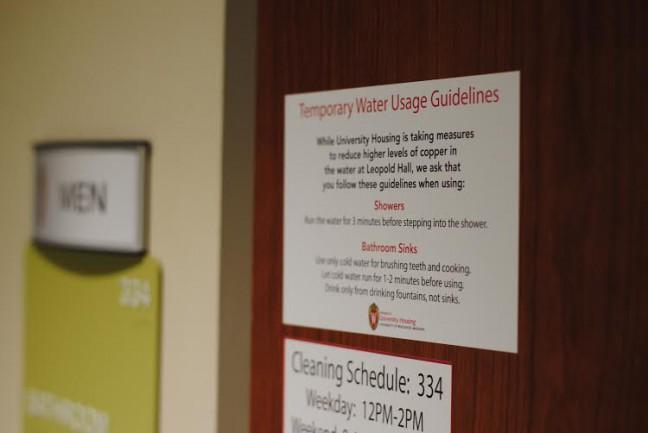After reports of shower water turning residents’ hair green, tests confirmed elevated copper levels in the University of Wisconsin’s Aldo Leopold Hall’s water.
The State of Wisconsin’s Department of Administration recently conducted tests in conjunction with University Health Services that found the green tint in some residents’ hair can be traced to increased copper levels in the water piping, Mike Kinderman, director of Residence Hall Facilities, said.
Leopold Hall, which opened its doors in August, prides itself on being the first “green” residence hall at UW. Named after environmentalist and past UW professor Aldo Leopold, the hall’s goal is to increase resident’s awareness about living in more sustainable ways.
The university sent out an email to Leopold Hall residents with temporary instructions on how to deal with the issue, including letting cold tap water run for one to two minutes before consumption and running shower water for three to five minutes before stepping under the water.
UW junior Aaron Conradt, a Leopold resident, said in an email to The Badger Herald, he crunched the numbers for himself and concluded that with 200 Leopold Hall residents following University Housing’s instructions for one month, nearly 168,000 liters of water will be wasted.
“I can’t believe that Leopold, [which is] supposed to be the greenest dorm on campus, has such a stupid policy that they have put in place,” Conradt said.
According to the email sent to residents from University Housing, of the seven copper water tests conducted, all but one came back within the Environmental Protection Agency Health Standard Threshold.
University Housing has narrowed down the elevated copper levels to a specific floor of Leopold Hall and concluded the tap water is safe for drinking and cooking as long as the faucet has been flushed, the email said.
Although the email said there were no health risks related to the elevated copper levels, it also warned residents of certain medical effects, including vomiting, diarrhea, stomach cramps and nausea.
However, Kinderman said the medical warning was “strictly informative” and the data University Housing has received shows there is no safety concern.
“More conclusive tests will be taken later this week, and then we will know more and be able to take steps from there,” he said.
Conradt said neither he nor any of his friends have experienced the effects from the water at Leopold Hall. However, he said blonde women have been most affected by the issue.
Housing will be installing equipment to add a low dosage of enhanced chlorine disinfectant to the water supply, according to the email.
“We are continuing to work on this issue and hope to have normal water tests coming back by the end of winter break,” Kinderman said.














